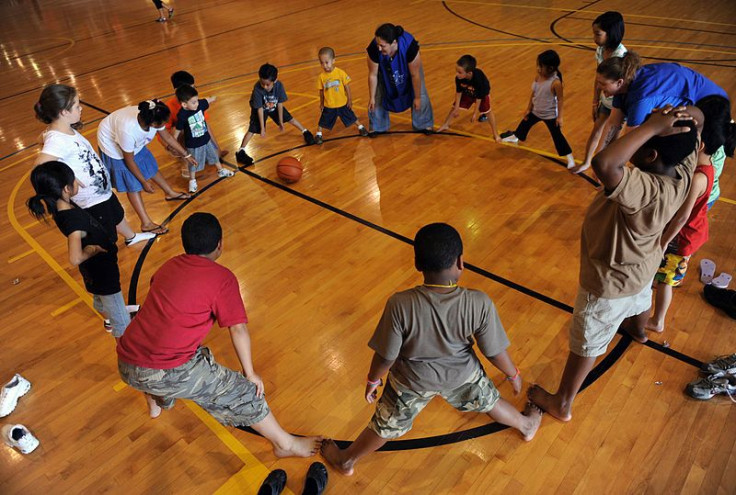Exercise Boosts Teens' Grades: How Many Minutes Of Physical Activity Will Help Children Get An A?

Teens who engage in at least 15 minutes of moderate to vigorous physical activity each day are found to boost their grades by a quarter, according to a recent study.
The Centers for Disease Control and Prevention (CDC) recommends that children and adolescents participate in 60 minutes or more of physical activity each day. Most of the 60 minutes of exercise should either be moderate or vigorous physical activity, and the latter should be done at least three days a week. Muscle-strengthening activities, like climbing, and bone-strengthening activities, like jumping, should be done three days a week.
In the study, researchers investigated the association between the duration and intensity of children’s daily physical activity levels and their academic performance. The findings of this study were based on a representative sample of approximately 5,000 children who were part of the Avon Longitudinal Study of Parents and Children (ALSPAC) — a long-running study that tracks children born between 1991 and 1992 in the U.K. Their academic performance in English, math, and science subjects were assessed at the ages of 11 (compulsory national test, key stage 1), 13 (compulsory national test, key stage 2), and 15/16 (General Certificate of Secondary Education; GCSE; key stage 4).
In the study, the levels of duration and intensity of exercises were tracked using an accelerometer that was worn as an elasticated belt by the children. These levels were measured for periods of between three and seven days since age 11.
The accelerometer showed the average number of minutes of moderate to vigorous exercise per day in an 11-year-old was 29 minutes for boys and 18 minutes for girls — falling short of the recommended 60 minutes, reports Science Daily. At this age, boys and girls experienced better academic performance in English, math, and science subjects due to the amount of physical activity they did. Girls’ grades in science were found to benefit from daily exercises. At age 13, teens’ grades were found to be linked to how much exercise students received at age 11.
However, at age 15/16, GCSE exam results showed a strong correlation between exercise and the increase in academic performance. Grades improved for every extra 17 minutes that boys exercised, and every extra 12 minutes for girls.
"This is an important finding, especially in light of the current UK and European Commission policy aimed at increasing the number of females in science subjects," said the study authors.
The study could pave the way for doctors to assess or reflect on how physical activity impacts the brain differently in boys and girls.
"Physical activity is more than just important for your physical health,” said Dr. Josie Booth, one of the study's lead authors. "There are other benefits and that is something that should be especially important to parents, policy-makers and people involved in education."
The study authors hypothesize what may happen if children increased the amount of moderate to vigorous exercise to the recommended 60 minutes a day. It is suggested that children who participate in 60 minutes of exercise every day could improve their academic performance by a full letter grade, going from a C to a B, or a B to an A, the BBC reports.
Physical activity has been speculated to stimulate brain power through the growth of new brain cells.
In a similar study published in the Proceedings of the National Academy of Sciences of the United States of America, aerobic exercises such as running or jogging were found to encourage the growth of new brain cells and improve memory and the ability to learn. The researchers used mice to show that even after a few days of running, the brain was stimulated to grow new cells in the specific region of the brain that involves memory and recollection. Physical exercise increases the amount of oxygen to the brain, thus enhancing the abilities of helpful brain chemicals while also protecting brain cells.
To find out what exercises you and your child can do, visit letsmove.gov/get-active.



























